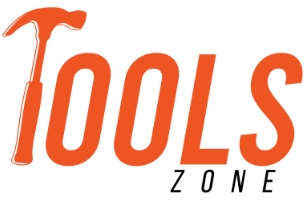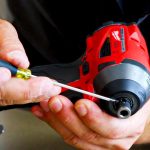For DIYers and craft enthusiasts, woodworking is a deeply gratifying hobby. But as a beginner, where do you start? Having the right set of essential tools provides the foundation for woodworking success as a novice.
When just getting started in woodworking, high-quality basic tools allow you to safely complete projects while setting the stage for skill progression. Investing thoughtfully in fundamental woodworking tools early on will equip any new woodworker to take on more advanced techniques down the road.
In this guide, we will cover the 10 must-have woodworking tools for every beginner’s toolkit. Understanding the core purpose of these essential instruments will help you maximize your initial setup as a novice.
With dedication and regular practice using these starter tools, you’ll be on your way to constructing stunning wooden items and furniture in your own workshop. The satisfaction of skill mastery starts here!
The key beginner woodworking tools we will be exploring include:
- Measurement Tape
- Drill
- Saw
- Pocket Hole Jig
- Carpenter’s Square
- Clamps
- Hammer
- Sanders
- Chisel Set
- Safety Gears
1. Measurement Tape
A measurement tape is an essential woodworking tool for any beginner to have. Accuracy is crucial in woodworking, as even small measurement mistakes can ruin an entire project.
The measurement tape allows you to accurately mark cut lines, determine dimensions, and ensure proper sizing of woodworking projects.
As a novice, having a high-quality, precise measuring tape on hand is crucial for achieving flawless cuts and build specifications. Look for a tape measure with large, easy-to-read markings so you can clearly discern measurements.

Tapes with automatic retraction features are also convenient for smooth operation with one hand. Sturdy blades that won’t bend or warp will also improve measuring accuracy.
Investing in a durable measurement tape removes the frustration of inaccuracies and mistakes in measurement. With this indispensable tool, you can achieve perfect measurements and avoid costly woodworking errors as a beginner
2. Drill Machine
A versatile drill is a must-have woodworking tool for beginners to create holes and drive screws. Cordless drill drivers are ideal for novices to drill pilot holes, make dowel joints, and sand/polish materials with attachments. Impact drivers provide extra power for heavy-duty fastening tasks.
For heavy drilling into concrete or masonry, choose a rotary hammer drill. Having the right drill for the job saves time and effort when hole-making.
As a beginner, focus on a compact, lightweight cordless driver with variable speed and torque control. This allows precise drilling into different materials without stripping screws or damaging surfaces.
Key features to look for include brushless motors for efficiency, lithium batteries for longevity, a comfortable grip, and a range of clutch settings. Sturdy chucks hold drill bits securely.
With the proper drill, novices can accurately drill holes, insert fasteners, and complete basic tasks that many wood projects rely on. It’s a versatile, essential addition to any beginning woodworker’s toolkit.
3. Saw
Saws are essential woodworking tools for cutting wood precisely. As a beginner, having the right saw for your needs is crucial.
Handsaws like the miter saw allow cross cuts, rip cuts, and angled cuts with control. Jigsaws cut curves or shapes in wood. Circular saws rip lumber along the grain.
Focus on a compact miter or circular saw to start. Use sharp blades specifically for the wood type and cut needed. Carbide-tipped blades last longer. Hollow-ground blades help prevent binding.
Proper saw technique is also vital for clean, accurate cuts. Let the blade do the work without forcing. Support the workpiece properly and cut to a marked line. Use a slow, steady speed and smooth motion.

With quality saws suited to basic cuts, beginners can tackle many essential woodcutting tasks. Invest wisely in the types of saws you need for your projects. This helps simplify woodworking and improves safety and efficiency.
The right manual or power saw enables novices to achieve precise, error-free cuts. Having go-to saws in your starter toolkit will let you take on more ambitious woodworking work.
4. Pocket Hole Jig
A pocket hole jig is an invaluable woodworking tool for beginners to create strong joints using angled screws. The jig guides the drilling of precisely positioned holes required for pocket hole joinery.
The pocket hole jig ensures the holes are drilled at the ideal angle and depth. This enables novices to accurately drive screws to join two boards tightly. The resulting joint is strong, secure, and hides the screw heads for a professional finish.
Having a pocket hole jig allows beginners to easily drill accurate pocket holes for sturdy wood joinery in frames, drawers, cabinets, and other right-angled joints.
Look for a jig with clear markings and adjustments for different material thicknesses. High-quality guides ensure straight holes are placed exactly where needed. Sturdy clamping holds boards firmly while drilling pocket holes.
With this indispensable tool, beginners can achieve professional results on joinery projects right away. The pocket hole jig removes the learning curve and frustration when creating robust mortise and tenon-style joints using screws.
It’s a must-have for both building and honing woodworking skills.
5. Carpenter’s Square
A carpenter’s square is an essential woodworking layout and measuring tool, especially for beginners. This L-shaped device has precise 90° angles used to mark perpendicular lines and check squareness.

The long arm enables measuring lengths and widths. The short arm creates a fixed reference for square layout lines. This allows novices to accurately measure, mark, and establish perfect square.
Quality squares have straightedges for precision and a permanent 90° angle to align joints perfectly. This helps avoid costly errors and achieve clean results as a beginner.
Look for squares made of durable materials that resist warping and provide sharp, clear markings. Stainless steel, aluminum, or cast iron are ideal. Smooth, nick-free edges improve accuracy.
Using a square takes practice. Glide the short arm along the workpiece edge while keeping the long arm flush. Then use the straightedge to mark a precise cut line. Flip the square and repeat to create square layout lines.
The carpenter’s square is an indispensable woodworking tool for beginners learning crucial measuring and layout skills. Investing in a precise, durable square will provide a solid foundation for success.
6. Clamps
Clamps are essential beginner woodworking tools that provide extra hands to grip workpieces securely. They hold boards flush and tight for gluing, nailing, drilling, and joint-making.
There are many types useful for different needs – C-clamps, bar clamps, pipe clamps, and corner clamps. But as a novice, focus first on spring clamps, twist/quick clamps, and F-clamps.
Quality clamps prevent workpieces from shifting and keep them aligned properly without marring surfaces. This makes assembling wood projects much easier for beginners.
Consider spring clamps for light tasks securing small pieces. Twist/quick clamps offer fast one-handed operation. F-clamps have adjustable padded jaws for tasks requiring significant clamping pressure.
Investing in durable, versatile clamps suited to basic applications will prove invaluable on any beginner woodworking project requiring bonded joints or assembly. They provide the extra grip novices need to safely practice fundamental techniques.
Clamps are like a set of extra hands for beginners. With the right starter collection, you can take on more complex projects requiring multiple glued joints or stable parts during assembly.
7. Claw Hammer
A claw hammer is an essential woodworking tool for beginners to drive and remove nails precisely. Select a quality hammer with an appropriate weight and non-slip grip.

Use the claw to safely pull bent nails and the hammer head to drive nails flush. Strike nails squarely with smooth, straight blows. Let the hammer do the work.
Practice proper technique on scrap material to improve accuracy and avoid mishits. Grip near the end of the handle for more control.
Having a reliable claw hammer makes nailing tasks easier for novices. It’s a woodworking staple that allows secure fastening and removal of nails as needed.
Invest in a durable hammer fitted to your hand size and project needs. Fiberglass or steel handles absorb less vibration. 16 or 20 ounce sizes work well for beginners.
With practice, a claw hammer enables accurate nailing and pulling. It’s an essential tool for beginners to master, providing safe nail fastening versatility.
8. Sanders
Sanders are indispensable woodworking tools for beginners seeking smooth finishes. Sanding by hand is slow and physically demanding. Quality power sanders make the process faster, easier, and more precise.
Orbital and sheet sanders quickly smooth flat surfaces without scratches. Detail sanders reach tight spots. Belt and disc sanders shape contours and edges. Always start coarse and work up to finer grits.
Focus first as a novice on a 6-inch random orbital sander. The random action prevents swirling marks while the palm grip maneuverability suits many sanding needs.
Proper sanding technique is also important – keep the sander moving to avoid uneven spots and finish with the wood grain. Allowing the sander to do the work prevents uneven pressure or damage.
With the right sander, beginners can efficiently smooth both flat and curved pieces to a flawless, professional-grade finish. Sanders transforms rough workpieces into polished final products. They are a smart investment for any starter toolkit.
9. Chisel Set
A chisel set contains chisels of varying widths and shapes used for detailed woodworking tasks. At a minimum, a starter set should contain one each of 1⁄4”, 1⁄2”, 3⁄4”, and 1” bevel edge bench chisels for general-purpose use.
Chisels cut, shape, and pare materials softer than their steel. Hold the chisel correctly and use a mallet to drive it. Their sharp edges enable you to trim joints, carve out recesses, and sculpt detailed patterns. Bevel-edge chisels can get into tight spots.
Having a starter chisel set allows beginners to add fine details and textures not possible with other tools. With practice, chisels become an invaluable addition to intricate decorative touches.

Always use them safely with appropriate mallet strikes and learn proper sharpening. Chisels open up creative options as your woodworking skills grow.
10. Safety Gears
Safety should be the top priority for any beginner woodworker. At a minimum, you should always wear safety goggles, a dust mask, ear protection, and gloves when woodworking.
Safety goggles prevent eye injuries from debris and sawdust. Dust masks limit inhaling fine wood particles. Ear defenders protect hearing from loud power tools. Gloves shield hands and improve grip.
Look for durable, comfortable safety gear you’ll want to wear. Well-fitting goggles with anti-fog, anti-scratch lenses offer clear sight. Opt for N95 masks that filter smaller particles. Choose earmuffs or plugs with a high noise reduction rating. Leather gloves withstand abrasion.
Investing in quality safety equipment reduces injury risk substantially for novices. Woodworking tools can inflict serious harm if used improperly without precautions.
Make wearing protective gear an ironclad habit each time you work. Don’t ever compromise personal safety to save time or money. Practicing woodworking safely from the start prevents painful, costly accidents.
Wrapping Up
Having a collection of these must-have woodworking tools for beginners is the first step towards mastering woodworking fundamentals. Investing in these core must-have tools like the measurement tape, drill, saw, carpenter’s square, sander, and others equip novices with what’s needed to take on their first projects.
Learning to properly use these fundamental woodworking tools takes practice but is extremely rewarding. With them, you can build your skills from the ground up as a beginner DIY woodworker. Use this guide to help assemble your starter toolkit and start appreciating the value of these indispensable tools.
The right set of must-have woodworking tools for novices enables you to successfully and safely try basic woodworking techniques. As you gain experience, you can continue expanding your toolkit with more advanced specialty tools. But these basics lay the foundation for your growth. Master them first and you’ll be creating stunning wood pieces before you know it!










Leave a Comment